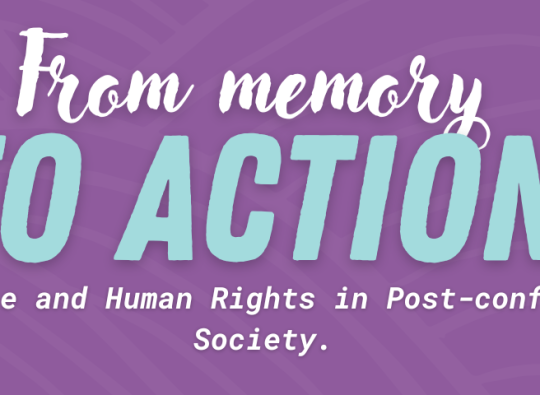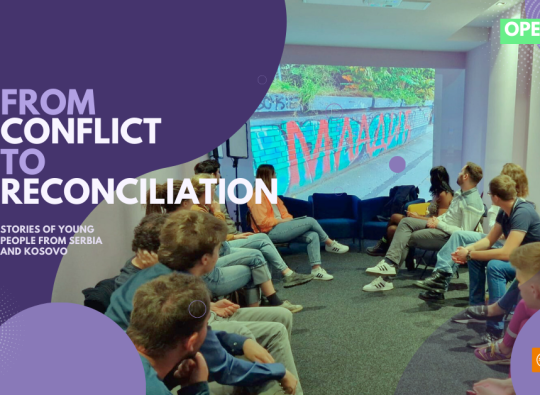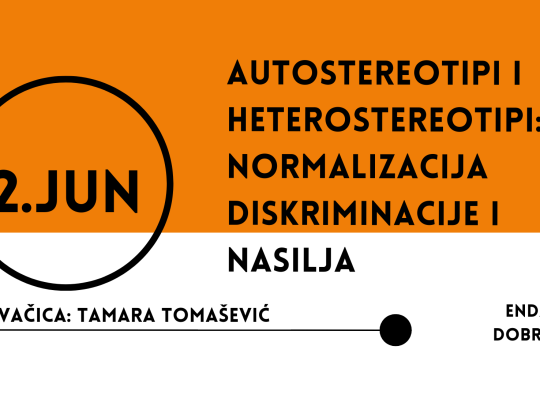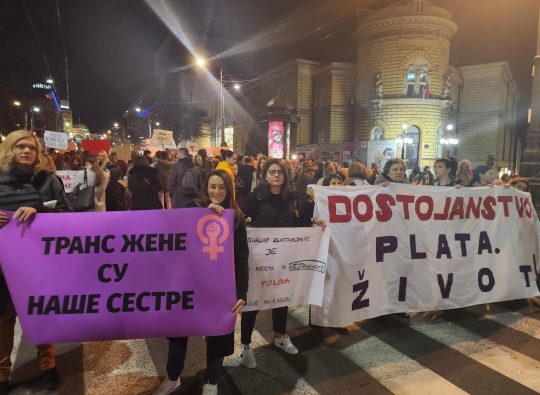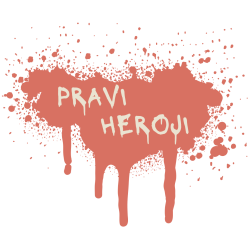The devastating impact of sexual violence during the conflicts of the 1990s in our region cannot be understated. The International Criminal Court for the former Yugoslavia recognized sexual violence as a weapon of war. Women, girls, men, and boys fell victim to these atrocious acts, leaving lasting scars on individuals and society as a whole.
Estimates suggest that tens of thousands of women endured sexual violence during this period, but the true number may be much higher. Regrettably, the exact count will never be known as some victims lost their lives, and many survivors were silenced by trauma and societal stigma. Today, we stand here to honor their resilience and advocate for their rights.
As organizations dedicated to combating discrimination and violence against women, and with extensive experience in addressing sexual and gender-based violence in the aftermath of the 1990s wars, we call for concrete actions to be taken.
In Bosnia and Herzegovina, the recognition of victim status (victims of war torture or civilian victims of war) is regulated in three different ways – in the Federation of Bosnia and Herzegovina (FBiH) and Republika Srpska (RS), and in the Brčko District of BiH – by laws primarily aimed at social protection of victims as one of the vulnerable groups in society. The prosecution of war crimes in BiH, including sexual violence committed during the war, takes place before 17 different courts and prosecutor’s offices, in accordance with different criminal procedure legislation. The perpetrators of war sexual violence are not adequately prosecuted, with many still at large, and in some parts of BiH, convicted war criminals are glorified while the crimes are denied. Although BiH has established certain mechanisms for reparations for survivors of war-related sexual violence in recent years in an attempt to address the needs of victims through the adoption of legislative solutions, it still does not provide adequate and comprehensive support to survivors of conflict-related sexual violence in line with international standards. Survivors have long-standing support from non-governmental organizations and feel that they have not received and continue to lack sufficient recognition and support from state representatives.
Twenty four years after the end of the war, Kosovo still struggles to achieve truth and justice regarding the legacy of sexualized war crimes. In our work with survivors of sexualized violence during the war, we have encountered issues that we would like to address to the Parliament and Government of Kosovo. Our aim is to initiate a discussion on amending and supplementing Law no. 04/L-172 and supplementing Law no. 04/L-054, which pertain to the status and rights of martyrs, invalids, veterans, members of the Kosovo Liberation Army, sexual violence victims of the war, civilian victims, and their families.
After the amendment of Law no. 04/L-054, survivors of sexualized violence during the war were recognized as civilian victims, allowing them to apply for recognition of their status as war-related sexualized violence survivors in Kosovo. However, the time limit for applying for this recognition is set at 5 years, which has already expired. Considering the nature and impact of sexualized violence crimes, the specific trauma experienced by survivors, and the stigma and exclusion they face within their families and communities, we propose that the time limit for recognition applications be removed. War crimes are considered crimes against humanity, and therefore, survivors should not be restricted by time limits to apply for recognition of their status.
The current law fails to grant survivors of sexualized war violence in Kosovo the same rights and benefits as other war categories. One essential right and benefit not enjoyed by survivors of sexualized violence during the war is the free provision of healthcare services.
We urge the members of the Parliament and the Government of Kosovo to actively amend this law, allowing survivors of sexualized violence to apply for recognition of their status and providing them with free healthcare services.
Serbia is the only country in the region that still has not conducted extensive research on the prevalence of women who have survived wartime sexual violence, their demographics and needs. At the same time, it is the only country in the region that still does not recognize survivors of sexual violence in wartime as civilian victims of war. Therefore, we urge the state to amend the current Law on the Rights of Veterans, Military Invalids, Civilian Invalids of War and their Families in order to explicitly recognize wartime sexual violence survivors as civil victims of war, regardless of their nationality. We also urge the state of Serbia to end impunity for this and all other war crimes and to provide all victims and survivors throughout the region with apologies for crimes committed in its name.
In our pursuit to combat sexual violence in conflict, we recognize the profound significance of regional solidarity. By uniting as organizations from Bosnia and Herzegovina, Kosovo, and Serbia, we send a powerful message that we can amplify the voices of the survivors and advocate for meaningful change across our region.
Through our collective efforts, we can create a formidable force for justice, support, and empowerment, ensuring that no survivor of sexual violence is left behind. Regional solidarity is crucial in building a future where the scourge of sexual violence is eradicated and where all individuals can live free from fear, trauma, and discrimination.
Based on the concept of Dealing with the Past Global program Amplifying Voices contributes to a culture of recognition and reconciliation in Southeast Europe, by integrating the perspective and needs of women affected by war-related SGBV into national and regional Dealing with the Past initiatives. Program activities focus on the realization of the right of survivors to know the truth, their right to reparation, and their right to justice, aiming to create changes on individual, societal, institutional, and political levels and enable women affected by war-related SGBV to live in dignity and without violence.
Organizations:
- Vive Žene, Tuzla, BiH
- Medica Zenica, Zenica, BiH
- Medica Gjakova, Gjakova, Kosovo
- Kosovo Rehabilitation Center for Torture Victims, Prishtina, Kosovo
- Autonomous Women’s Center, Belgrade, Serbia
- Women in Black, Belgrade, Serbia
- Youth Initiative for Human Rights, Belgrade, Serbia

